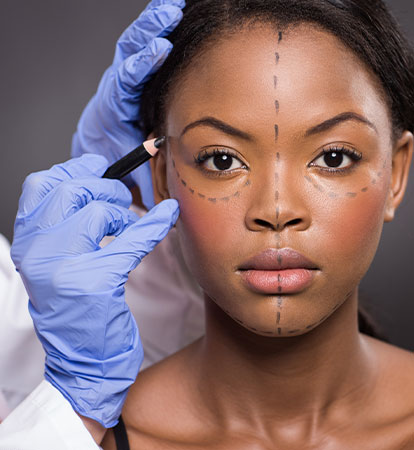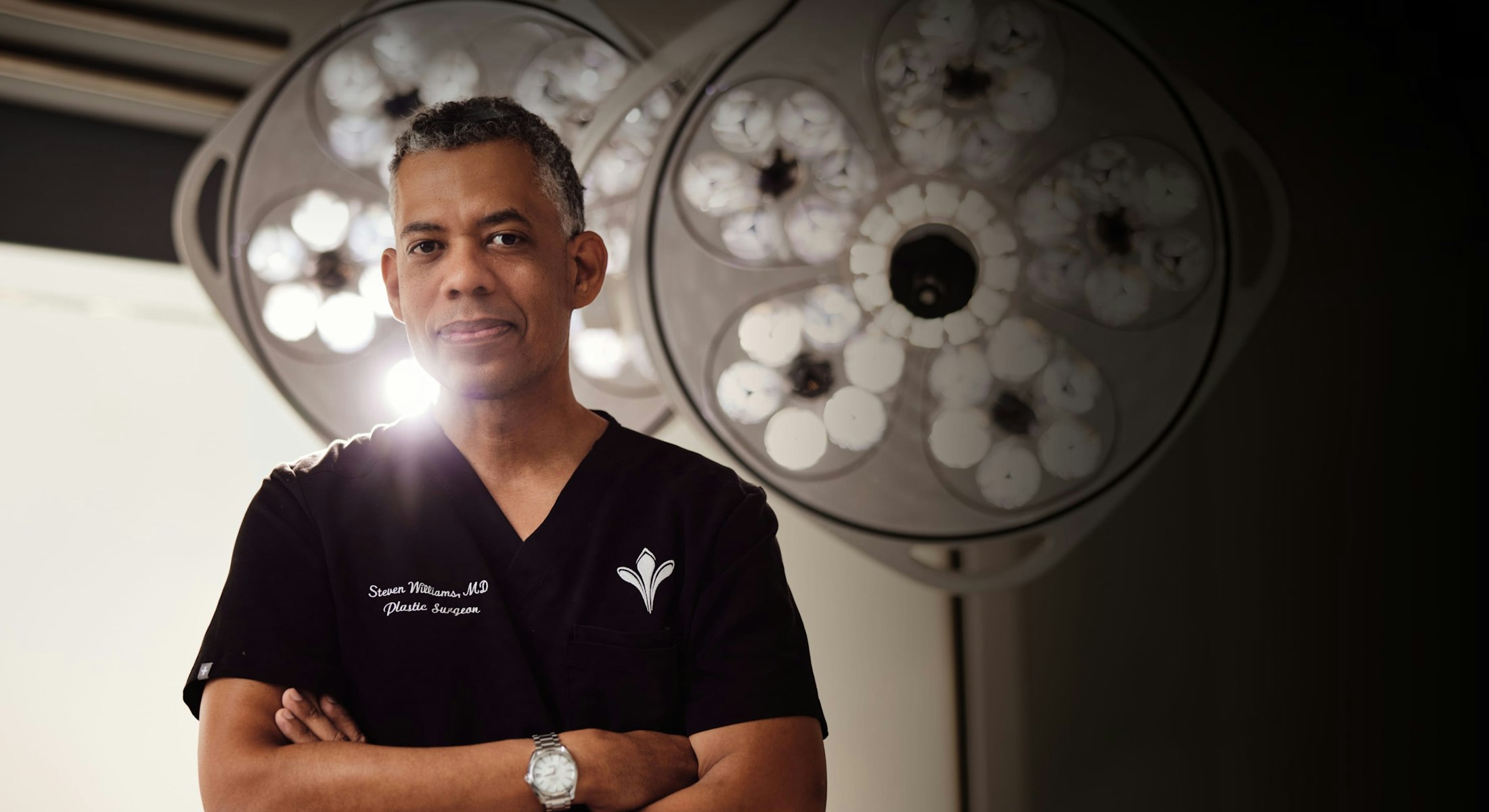Examining the Mental and Social Variables That Drive Individuals to Take Into Consideration Aesthetic Surgery as a way of Improvement
The choice to seek cosmetic surgical procedure commonly expands beyond plain aesthetic appeals, linking with emotional and social dynamics that merit thorough assessment. Factors such as self-worth, prevalent societal charm standards, and the prevalent influence of social media sites converge to form private motivations for medical enhancement. As these impacts end up being progressively popular, understanding the underlying cultural and emotional contexts is necessary. What remains to be explored is the extensive effect these factors have not only on individual identification however also on wider societal standards and values bordering beauty and acceptance.
The Duty of Self-worth
Self-confidence dramatically affects an individual's choice to go after plastic surgery. People with reduced self-esteem often view themselves in a negative light, leading to sensations of insufficiency regarding their physical look. This adverse self-perception can drive them to seek surgical interventions as a method of boosting their self-image. The need for renovation in one's appearance is often linked to a belief that such changes will certainly elevate their overall self-regard and self-confidence.

Eventually, the duty of self-confidence in the decision-making procedure pertaining to cosmetic surgical treatment highlights the intricate interaction in between body photo, individual complete satisfaction, and psychological health. Recognizing this relationship is essential for healthcare professionals to ensure that clients are making educated decisions rooted in reasonable expectations and emotional wellness.
Social Charm Criteria
Influenced by prevalent media representations and social narratives, societal appeal requirements play a vital duty in shaping people' understandings of their own bodies. These requirements are typically characterized by an idyllic form of beauty that emphasizes qualities such as youthfulness, proportion, and slimness. As these perfects are perpetuated through numerous channels, including film, tv, and marketing, individuals often internalize these messages, resulting in frustration with their natural look.
The implications of these social standards extend past visual preferences; they can impact self-worth, mental health and wellness, and social relationships. Individuals who regard themselves as disappointing these requirements might experience sensations of inadequacy, triggering a wish for plastic surgery as a way of accomplishing social authorization. This search is frequently fueled by the idea that complying with these ideals will certainly boost not just physical look yet likewise social standing and personal fulfillment.

Influence of Social Network
The effect of societal charm criteria is more amplified by the rise of social media systems, where curated pictures and idealized representations of elegance are common. Customers are continuously subjected to filteringed system and modified photographs, which frequently illustrate unattainable physical qualities. This direct exposure grows a society of contrast, leading people to examine their own look against these commonly unrealistic criteria.
Social media site influencers and celebrities regularly advertise cosmetic procedures, normalizing the notion that medical improvements are a viable means for achieving societal perfects (plastic surgery rancho cucamonga). The presence of these improvements can develop an understanding that going through Check Out Your URL cosmetic surgical treatment is a common technique, therefore affecting individuals to think about similar treatments as a path to boosted self-esteem and social approval
In addition, the interactive nature of social media permits instant feedback via sort and remarks, better strengthening the desire to adapt prominent beauty criteria. Such interactions can intensify sensations of insufficiency and drive individuals toward cosmetic surgical procedure as a way of obtaining recognition. Eventually, social media plays a pivotal duty Bonuses fit perceptions of elegance, which substantially affects the decision-making processes bordering cosmetic surgical treatment.

Cultural Perspectives on Appearance
Throughout different cultures, perceptions of look are deeply rooted in historic, social, and financial contexts, forming individuals' sights on appeal and value. In several cultures, look offers as a considerable pen of identity, affecting social status, professional possibilities, and individual relationships. As an example, in some societies, light skin is usually connected with wealth and privilege, while others might idealize darker skin tones as symbols of stamina and authenticity.
Additionally, conventional elegance criteria are commonly perpetuated with cultural narratives, media depictions, and family members influences, causing differing suitables throughout different areas (plastic surgery rancho cucamonga). In Western cultures, the emphasis on young people and physical fitness commonly drives individuals toward aesthetic enhancement, while in specific Eastern societies, more subtle modifications straightened with typical visual appeals might be preferred
Globalization and the proliferation of electronic media have actually additionally made complex these dynamics, producing a hybridization of appeal ideals that transcends geographical borders. As individuals increasingly navigate these social stories, the stress to adapt certain look criteria can lead to the wish for cosmetic surgery, showing a complex interplay of social worths and personal aspirations. Recognizing these cultural perspectives is vital in resolving the inspirations behind cosmetic surgical procedure factors to consider.
Emotional Effects of Plastic Surgery
Several people seeking cosmetic surgery report experiencing extensive emotional effects that can substantially modify their self-perception and psychological well-being - plastic surgery rancho cucamonga. The desire for physical improvement commonly stems from underlying issues such as reduced self-confidence, body dysmorphic disorder, or social pressures pertaining to elegance requirements. For some, the immediate post-operative stage can result in a momentary boost in confidence and satisfaction with their look, promoting a feeling of empowerment
Nevertheless, these favorable feelings might not be withstanding. Research suggests that while some clients experience boosted self-confidence, others might deal with heightened anxiety or clinical depression if their expectations are not fulfilled. This inconsistency can emerge from unrealistic suitables perpetuated by media depiction and social narratives bordering appeal.
Additionally, the emotional ramifications of plastic surgery extend past the person. Relationships with family and friends may be stressed as social characteristics shift, leading to sensations of seclusion or alienation. Ultimately, the mental influences of cosmetic surgery are multifaceted and complex, needing careful factor to consider by both possible patients and health care providers to make sure enlightened decision-making and practical expectations.
Final Thought
To conclude, the choice to seek plastic surgery is significantly influenced by a combination of self-confidence concerns, social elegance criteria, and cultural perspectives on appearance. The pervasive reach of social media even more exacerbates these pressures, promoting unrealistic ideals that individuals frequently strive to attain. Understanding these mental and social elements is essential for dealing with the motivations behind cosmetic surgical treatment, highlighting the requirement for a more nuanced conversation surrounding charm and self-acceptance in modern culture.
The decision to pursue cosmetic surgery frequently prolongs beyond simple aesthetic appeals, linking with social and mental dynamics that merit complete exam. Inevitably, social media plays a critical role in shaping assumptions of appeal, which substantially influences the decision-making procedures surrounding cosmetic surgical treatment.
As individuals significantly browse these cultural stories, the stress to adhere to his comment is here specific look requirements can lead to the need for cosmetic surgical procedure, showing a complex interaction of personal ambitions and cultural worths.In conclusion, the choice to go after cosmetic surgery is dramatically influenced by a mix of self-confidence issues, social charm criteria, and cultural viewpoints on appearance. Recognizing these emotional and social variables is crucial for attending to the motivations behind cosmetic surgical procedure, highlighting the requirement for an extra nuanced conversation bordering charm and self-acceptance in modern society.